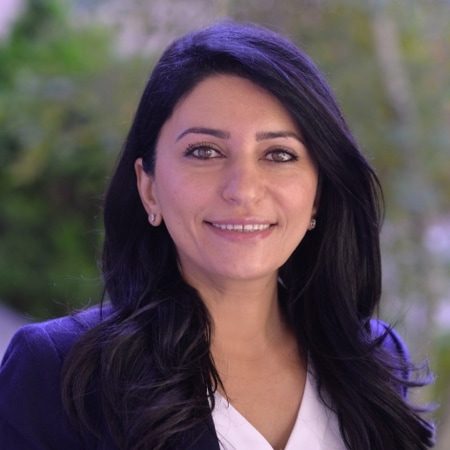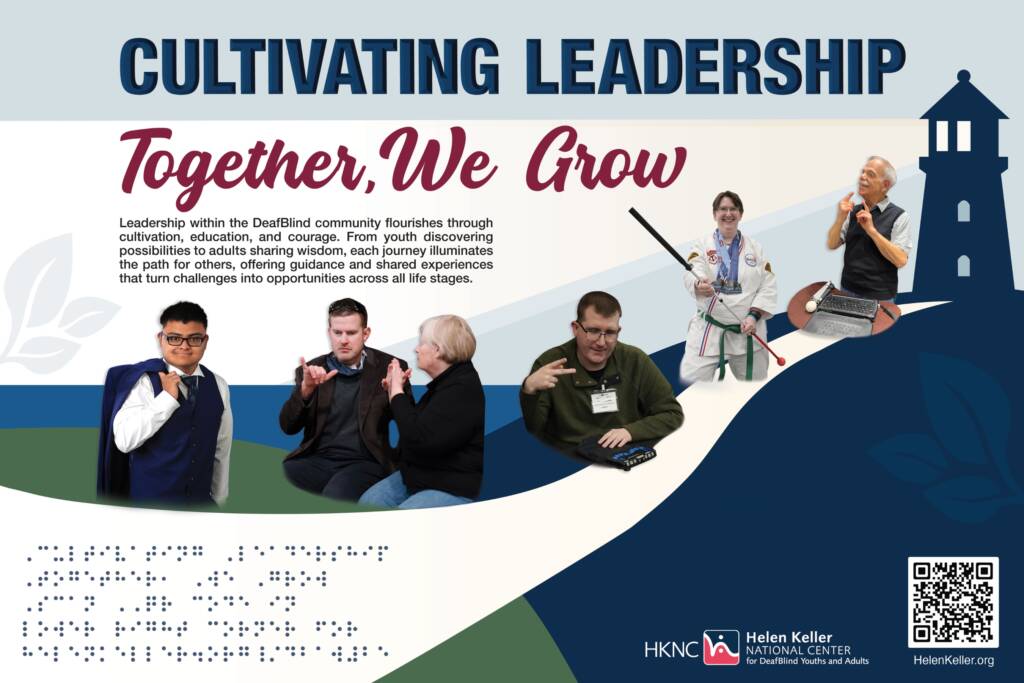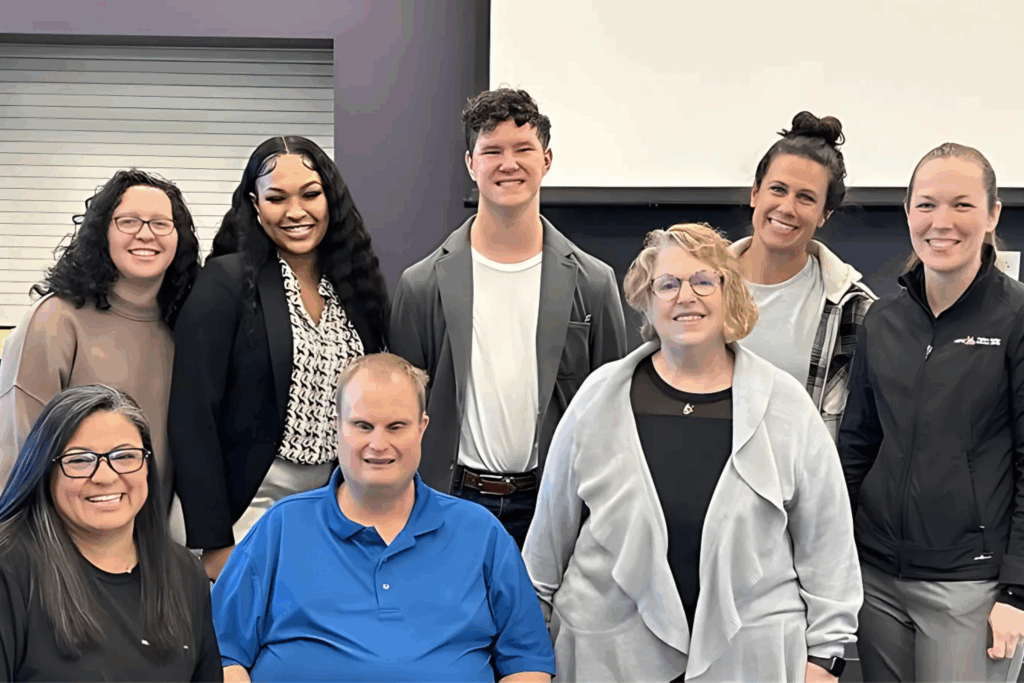Working For A Greater Purpose: A Nonprofit CFO’s Story
Sharona Hebroni shares the technical and financial impact on Helen Keller Services during the COVID-19 pandemic. Not-for-profit work comes to the realization that there’s so much more to be done in this world than making money.

FORBES
Working For A Greater Purpose: A Nonprofit CFO’s Story
By JEFF THOMSON Oct 23, 2020
For 127 years, Helen Keller Services has been helping people with audio and/or vision loss overcome obstacles to living full lives. For HKS’ CFO, Sharona Hebroni, managing the finance function at this nonprofit organization that bears an iconic name is an opportunity to engage in purpose-driven work, drawing on her skills in finance and accounting to truly make a difference. At the same time, Sharona has had to deal with many challenges similar to those facing finance professionals in the private sector, including dealing with the fallout of the Covid-19 pandemic and the need to keep technology and operations up to date in a changing world. For this Q&A, I spoke with Sharona and asked about her recent experiences as CFO of HKS during a turbulent year, what changes she has made at her organization to boost efficiency, and how she draws personal fulfillment from her ability to work for the greater good.
Jeff Thomson: Your organization is mission-driven, serving individuals who are blind, have vision loss, are DeafBlind or have combined vision and hearing loss, helping them live, work and thrive. How do you secure funding to meet this mission? Does HKS run like a business, with business continuity plans for severe disruptions like Covid-19?
Sharona Hebroni: We receive our funding from a variety of sources including federal and state programs, government contracts, grants, donations and other contributions. Our budget is not dependent on contributions and donations, and more closely reflects our level of government funding, contracts and grants. A significant investment portfolio ensures that we have the funds to cover any shortfall, but we keep that at a minimum. A current project is to build a better database of donors to enhance our development efforts.
While Helen Keller Services runs as a business, we are different from the for-profit sphere. But the larger question is could anyone, or any business, have been fully prepared for something as unprecedented as Covid-19?
As many of our programs are based in the New York metropolitan area, we were among the first in the country (March 13) to experience a shut down and were forced to act quickly with very little notice and no model on which to base our response. With the exception of our Group Homes, Helen Keller Services immediately closed our residential program and suspended our in-person programs.
If there’s an upside, the actions we took to be able to continue to provide services have given us the opportunity to take a fresh look at what we do. A pandemic forces you to turn away from anything you’ve done in the past to face the current situation. My model through the pandemic was not just to get through it but emerge stronger post-Covid, asking “what did we learn?”, “how can we revamp services, increase training, etc.”, to better serve our consumers?
Thomson: Covid-19 hit all organizations hard, but has been especially challenging for those that rely on donations and grant monies for survival. You led the process of applying for a Payroll Protection Program (PPP) loan, which was ultimately received. Can you discuss how you have deployed these needed resources so that it would be consistent with the mandates of the CARES Act? What insights would you have for other CFOs in organizations – nonprofit or otherwise – that have received PPP loans?
Hebroni: How a Payroll Protection loan can be deployed is strictly indicated within the loan documents. It must be utilized to pay for salary, rent, utilities, internet and the like. That said, my recommendation to the nonprofit world is to document everything. It’s imperative to keep informed of any updates and clarifications on a regular basis to make sure all expenses are properly allocated.
For many not-for-profits, the PPP program has been a life-saver, but great caution is required to make sure funds are allocated properly. The PPP loan, if forgiven, will be treated as a federal grant, and will require the same oversight and reporting as any other federal grant. Webinars have served as one reliable source of pertinent information for me.
Thomson: You made the decision this year to switch HKS’ budget reviews from yearly to quarterly. What insights and considerations drove this change? What can you tell other CFOs about best practices when it comes to yearly vs. quarterly reviews?
Hebroni: April is budget season for Helen Keller Services. When you look at budgets, forecasting is part of the process. Normally, I sit with each department and learn about their needs and in that way capture their budget. In the middle of a pandemic, when there’s no way to foresee even the next month, it didn’t make sense to plan a year ahead. We had to make sure we were watching real time changes from a closer prospective. Business decisions have to rely on financial information and you have to be ready to adapt. Reviewing budgets quarterly makes much more sense right now. Now that we have been going through this for a few months, we have a better sense of what December is going to look like. Our first responsibility is to be able to operate and fund our programs. If we don’t keep our programs going, we have nothing.
Thomson: Automation has been a crucial trend in the finance function in recent years, helping CFOs in the private sector raise productivity and ultimately maximize profits. As a nonprofit CFO, how have you similarly invested in automation and related technologies to improve efficiency and boost productivity? How have you been able to turn this into gains for HKS’ philanthropic initiatives?
Hebroni: Helen Keller Services has been undergoing the essential transition to technology over the past several years. We’ve made significant progress to maximize efficiencies over the ten years I’ve been with HKS and now as the CFO my goal is to make automation the highest priority. As a not-for-profit with limited budgets it behooves us to think optimally about technology and become informed as to the most practical applications with the most return on investment.
The current business environment has only emphasized the importance of automation. Automation can be very costly, but even with a limited budget, there are many cost-effective [ways] to implement automation. Like everything else, you have to work smart, be proactive and be on the lookout for the right tools at the right price. I have the responsibility as CFO to benefit my entire organization by sharing the tricks I’ve learned to streamline operations. Technology has helped us consolidate reporting, giving us better purchasing power and reporting for the agency as a whole.
Thomson: Surveys of finance professionals increasingly show that people entering the field today want to do more than simply advance their careers or make money. They want to serve or work toward a greater purpose – and make a difference in society at large. How do you capitalize on your technical skills to serve the greater good? As a woman in a traditionally male dominated profession, what obstacles did you have to overcome to rise to the executive level?
Hebroni: If you are in the not-for-profit sector, you’re probably not in it for the money. Whether or not it is your intention, you end up caring more than you ever thought possible with an unswerving dedication to your mission and your consumers. Not-for-profit work opens you up to the idea that there’s so much more to be done in this world than making money. You feel better about yourself, productive and proud of what you’re doing. It feeds your soul.
It’s important to capitalize technology to serve the greater good and allow us to do more of what we’re doing through efficiency and productivity. When I learn something valuable, I don’t just take it to my department; I’m looking at it and how it can be best utilized throughout the entire agency. I push and support my team in automation and technical skills. I recognize the importance of incurring an expense if it’s going to make us more efficient.
The industry was male dominated in the past, but I have to say there has been a significant shift. Today I see many women among my peers in executive positions, achieving success. We all face obstacles in pursuit of our dreams. I prefer looking at an obstacle less as an impediment than as something that will help strengthen my abilities and further improve my capabilities and confidence. Have I faced obstacles as woman in this profession? Yes, but I have learned to embrace them and look ahead, focused on my goals.
This article has been edited and condensed.


